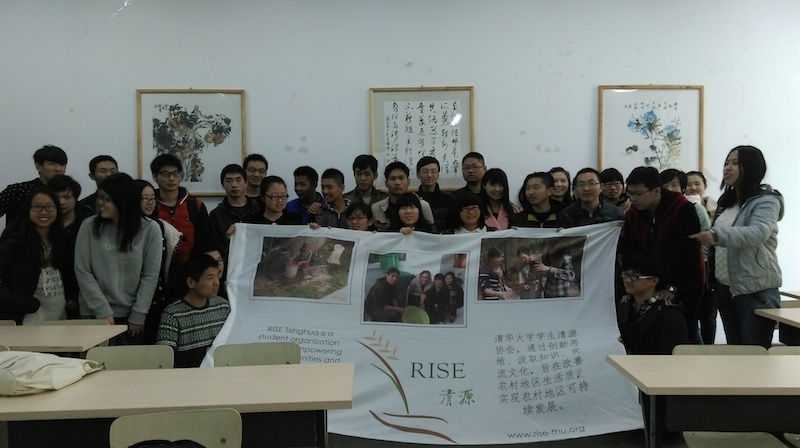Catherine from Exeter University in UK, is studying Chinese at Tsinghua University, gives an account of her weekend trip to ShanXi province.On the 12-15 March, a group of RISE students went to 山西 (ShanXi) province to further our project of developing and disseminating low cost, effective methods of water filtration.
We were greeted in 太原 (TaiYuan) by our counterparts from 太原理工大学 (TaiYuan University of Technology, TLD) where we spent most of the next day teaching TLD students how to construct and maintain a Bio-Sand Filter (BSF).

Meanwhile, two of our members travelled to 平遥 (Pingyao) to source materials to build and test Sand Filters in the nearby village of 阳江包(Yangjangbao). Previous testing revealed that the water supply in this villiage contained an unsafe amount of arsenic, at least 2 times higher that the maximum allowed limit for Chinese small scale rural water supplies (over 100ug/l).
Therefore, in this initial stage of the project, we constructed four different sand filters to find the most suitable option for disemination on a larger scale. Each filter design had a slight variation: a standard BSF (no nails), an Arsenic Bio-Sand filter (ABF, containing nails), an ABF with water passed through twice, and the final with nails inserted under the top layer of sand.

We were able to start testing samples with portable equipment from Palintest, as well as collecting samples to take back to Beijing for analysis.
All in all a sucessful weekend! Thanks to the team for all their hard work that made it happen.
Latest posts by Richard Coward (see all)
- We are looking for Content Creators, Student Ambassadors and Micro-influencers - December 6, 2024
- We’re Hiring International Marketing Manager at Global Admissions - October 29, 2024
- 2025 Intake: 7 Scholarships for ZUST - October 11, 2024
